Protect Birds & Their Habitats
Birding
Protect Birds & Their Habitats
Birding
You can put Tucson Audubon’s years of experience to work for you. With demonstrated expertise in invasive plant removal and treatment, habitat maintenance, community science, and much more, Tucson Audubon is the right partner for your project.
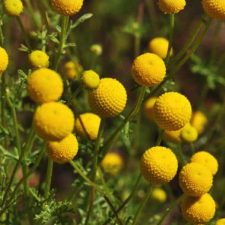
email Tony Figueroa, tfigueroa@tucsonaudubon.org
Invasive plants, especially stinknet and buffelgrass, represent a threat not only to native plants and the wildlife who depend on them but also to health and human safety due to the fires they convey. Removing invasive plants safely and effectively requires a deep knowledge of a variety of techniques and processes. Our crews bring cutting edge digital mapping and precision treatment in an ecologically sensitive fashion to our clients including options for web-based infestation condition documentation and treatment progress.
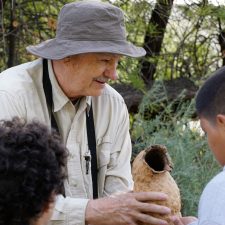
email Alex Patia, apatia@tucsonaudubon.org
Tucson Audubon would love to work with your school, camp, or education program. We currently offer educational field trips at Sweetwater Wetlands.
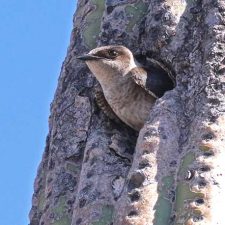
email Jennie MacFarland, jmacfarland@tucsonaudubon.org
Whether you need federally required clearance surveys of threatened or endangered birds for an upcoming project, baseline and post-project surveys to assess the impacts or benefits of your conservation or research project, or are looking for help to assess bird life in your area, we can help. Tucson Audubon is permitted to provide project clearance surveys for southwest Willow Flycatchers, western Yellow-billed Cuckoos, Mexican Spotted Owls, and western Burrowing Owls. We have decades of experience planning and designing appropriate surveys to capture the information needed to show the efficacy or impacts of your project and to guide citizen/community-science based long-term monitoring for research and outreach purposes tailored to your specific needs.
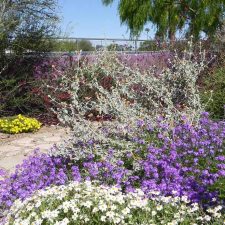
email Tucson Audubon Habitat Staff, habitat@tucsonaudubon.org
Individual houses and whole neighborhoods can become sustainable landscapes that support wildlife and bring joy to those that live there. We assess your current conditions, your goal outcomes and constraints, and provide a plan for you to maximize the sustainability of your landscape. We have worked with HOAs to upgrade failing stormwater detention areas into high-functioning habitat that serves its flood control functions better than the original design and decrease localized flood risks, and with businesses and individual homeowners to design integrated rainwater harvesting and native plant landscapes that conserve our natural resources for the future.
Please contact us for commercial pricing. ROC 346691
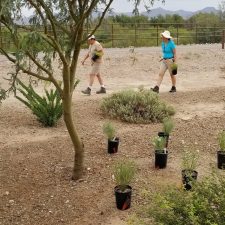
email Kari Hackney, khackney@tucsonaudubon.org
Our Urban Habitats program can not only design the sustainable native-plant landscape that you desire, we can install it for you. We have decades of experience implementing active and passive rainwater harvesting systems, installing irrigation systems at a range of scales and permanence levels, and have planted hundreds of thousands of native plants in a wide variety of contexts from urban backyards to floodplains to desert upland. We know and love the plants of the Sonoran Desert and the birds they support and want to see them have a long and bright future near you! We also install tortoise burrows and tortoise-specific habitat vegetation for those seeking to host a rescued Desert Tortoise.
Tucson Audubon Habitat Design and Install Services ROC 346691
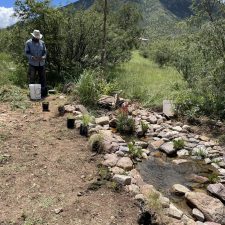
email Tucson Audubon Habitat Staff, habitat@tucsonaudubon.org
Water is life – especially in the desert! Making water available to creatures in your yard will significantly increase the value of your yard habitat and its draw for birds, butterflies, and all sorts of other desired wildlife. We have experience installing numerous natural-looking prefab fountain systems that have proven to be easily maintained cost-effective bird magnets, as well as creating custom ponds, streams, and wetland complexes for those seeking to support a wider variety of wildlife or provide refugia conditions for regional endangered fish and plants throughout southeastern Arizona.
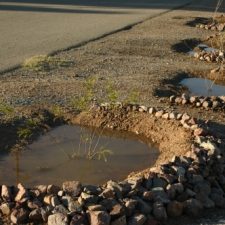
email Cally Wilken, cwilken@tucsonaudubon.org
Southern Arizona is in the midst of a 30-year megadrought. Dry soils shed water instead of absorbing it which can lead to increased erosion and vegetation die-off. Our team can work with you to plan and install the best corrective features, those that will initiate a self-healing process for your site – from simple sheetflow spreaders to trincheras to larger structures installed by heavy equipment.
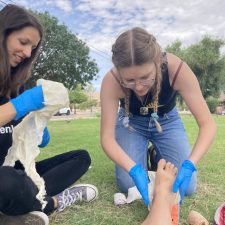
email Jay Snowdon, jsnowdon@tucsonaudubon.org
Do members of your staff, club, or community work or play in remote locations far from emergency services? If so, Wilderness First Aid training and certification may be a valuable and potentially lifesaving resource. We have an on-staff Wilderness First Aid trainer who can provide this 3-day training to your group of up to 10 people. If you only have an individual or few people, we can schedule to include you in a future training with our own Tucson Audubon field staff. Learn more
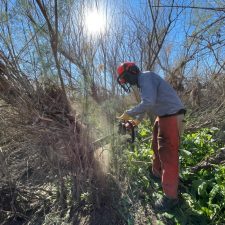
email Tony Figueroa, tfigueroa@tucsonaudubon.org
As wildfires continue to expand and intensify throughout Southeast Arizona, the need to identify and treat areas of problematic fuels becomes ever more pressing. Our trained saw crews can thin and treat unwanted non-native woody vegetation that poses a fire risk for your residence or community. We are able to chip the material on site for your use as mulch or remove it. We are also able to assess and mitigate your fire risk caused by invasive grasses or low-growing ladder fuels creating defensible spaces for your protection.
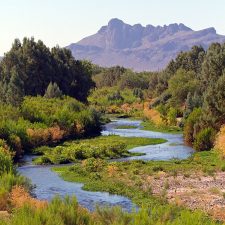
email Cally Wilken, cwilken@tucsonaudubon.org
For more than two decades Tucson Audubon has provided In-lieu Fee Mitigation to responsibly and legally offset impacts to jurisdictional waters – those waters officially protected by the US Army Corps of Engineers. We currently have one project underway providing mitigation for impacts to the Santa Cruz River watershed with over 30 advance credits available to sell. Our current credit price is $85,000/credit (8/2022). Projects in additional watersheds are in early stages of exploration and development.
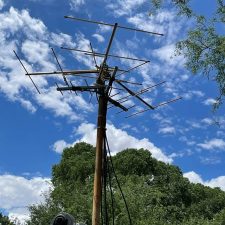
email Melissa Fratello, mfratello@tucsonaudubon.org
A new era in international bird and wildlife tracking has arrived with the Motus network. Tucson Audubon has installed base stations on two of its centers (the Mason Center for Ironwood Preservation and Environmental Education and the Paton Center for Hummingbirds) and is partnering with other regional groups to install numerous more. We can accelerate you past the design and installation learning curve to achieve a functioning station at your research or conservation site – either co-located with existing infrastructure or standalone in a remote setting.